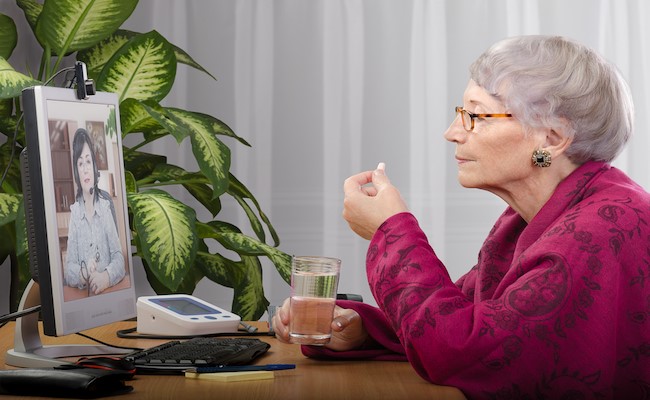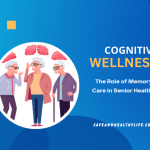With over 48 million seniors in the United States, there is an increased demand for senior healthcare. Due to the number of seniors over the age of 65 and the economic situation of the rest of the population, there is concern that seniors won’t be able to get the care they need. As a result, technology is stepping in to make it easier for seniors to manage their needs.

Digital Dispensers
When it’s time to take medicine, a digital dispenser releases the pills, allowing you to avoid handling pharmacy bottles. It holds up to a 90-day supply, and when that is running low, it will also notify you or your caregiver by a text or email alert.
This allows you to get that refill taken care of quickly, avoiding a wait at the pharmacy when you’re out of medicine. Forget to take a dose? These dispensers will remind you, allowing you to take it as soon as possible. It can hold up to 15 separate medications, so you can have all of your medicines handled by one machine.
Virtual Doctor Visits
If you can’t leave the house to visit the doctor due to mobility issues or lack of a vehicle, your doctor can come to you. With telephone or video conferences, your doctor can discuss questions or concerns.

In limited situations, doctors are able to prescribe simple antibiotics, allowing you to take care of an infection without a visit to the urgent care. These are not a full substitute for in-office visits, but they are an excellent supplement for simple problems. (See also: Infographic: Seniors Medication Errors)
Electronic Bed Sensors
If you’re concerned about sleep quality or wondering how your body is working throughout the night, a bed sensor can provide this information. In addition to detecting if you are in the bed or not, it also monitors how many times you leave the bed each evening.
Other vital information these sensors can provide includes your respiratory rate, whether or not you’ve tossed and turned a lot, as well as your heart rate. (See also: A Bed for All Sizes: An Introduction to Bariatric Beds)
Visual Alerts
If you have trouble hearing someone knocking on the door or ringing a doorbell, you may miss important packages or visitors. These alerts will create a visual notification, such as a flashing light. This technology can help ease your concerns about missing a medication delivery or giving visitors a cause for concern for your well-being.
Environmental Stabilization
In addition to environmental comfort systems such as your heater or air conditioner, there are systems in place to stabilize the environment during a sudden change. These controls will also notify you when there is a sudden change in temperature or humidity levels. This can help alert you to a window or door being left open, as well as if an air conditioner or heating system is in need of repair.
Remote Monitoring Systems
If you need the consistent monitoring you’d receive in a nursing home or hospital, you can now receive the same care at your home. This allows you to stay where you feel the most comfortable, reducing anxiety and further stress on your heart.
Statistics which can be monitored include blood pressure, respiratory rate, and heart rate. The data is sent to your doctor, allowing them to schedule a visit if the monitoring system shows a cause for concern.
Virtual Reality Training
For the Provider
If you have a new doctor or health care technician, there is a likely chance they received hands-on training through a virtual system. This allows medical providers to learn the techniques necessary as well as practice on systems which represent real-life situations. No patients are harmed during the training process, giving the healthcare provider peace of mind while learning important techniques.
For the Patient
When a surgery is necessary or if you’re uneasy about a procedure, a virtual reality system can walk you through the process. These systems show you what will occur, allowing you the information you need to go into the procedure confidently. You are introduced slowly to the causes for concern, allowing you time to acclimate to the situation without trauma or a sudden phobia.
About The Author:
Lindsay Engle is the Marketing Specialist at MedicareFAQ, a learning resource center for Medicare and Medicare Supplements. Lindsay loves working in the senior healthcare industry. Aside from her job, she has a great passion for animals and loves boating. In her spare time, she enjoys snuggling on the couch with her pets as well as fishing with her boyfriend.




